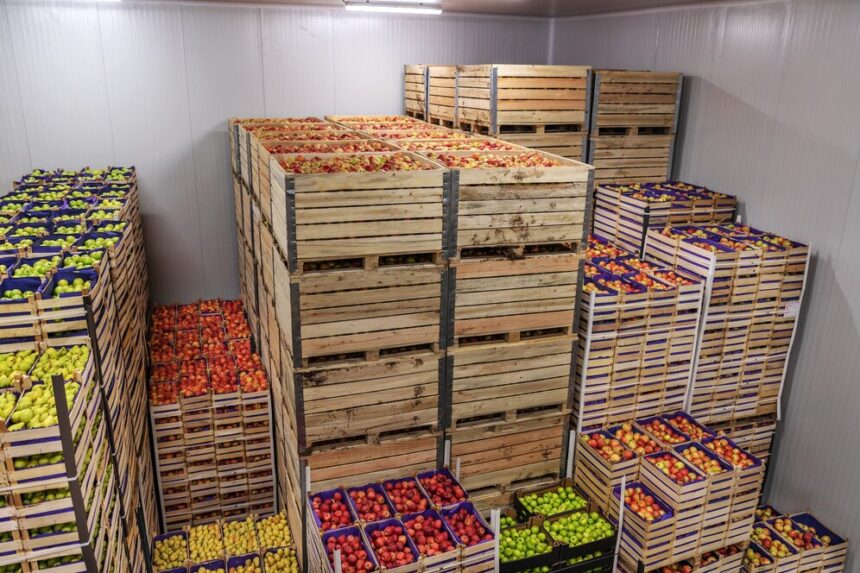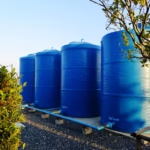For small-scale farmers, one of the greatest challenges in maintaining profitability is managing the post-harvest phase. Without proper storage, produce can quickly spoil, leading to wastage, loss of income, and missed market opportunities. Cold storage is an essential tool in extending the shelf life of perishable goods, such as fruits, vegetables, and dairy products, allowing farmers to store their produce safely before selling. In this article, we explore affordable and effective cold storage solutions tailored for small-scale farmers.
1. The Importance of Cold Storage for Small-Scale Farmers
Cold storage helps small-scale farmers preserve the quality of their produce for a longer time, reducing spoilage and increasing market opportunities. By keeping food at the optimal temperature, it slows down the ripening or decaying process, preventing losses due to spoilage. It also ensures that farmers can sell their products at the right time when demand is higher, rather than rushing to sell immediately after harvest.
With South Africa’s diverse climates, certain regions experience extreme temperatures, making it even more critical to store produce at appropriate temperatures to prevent quality deterioration. Cold storage can make a significant difference in reducing food wastage and boosting farm income.
2. Understanding Cold Storage Needs
The first step in adopting a cold storage solution is understanding the specific needs of the farm. Different crops have different storage requirements. For instance, fruits like apples, citrus, and grapes require different temperatures and humidity levels compared to leafy vegetables or dairy products.
- Temperature Control: Each type of produce has an ideal temperature range. Most fruits and vegetables are stored between 0°C to 10°C, while dairy products, such as milk, require even lower temperatures.
- Humidity Control: Maintaining the right humidity levels is crucial to prevent produce from drying out or becoming too moist, which can lead to fungal growth. Some vegetables, like leafy greens, require high humidity, while others, like potatoes, need a lower humidity environment.
3. Affordable Cold Storage Options for Small-Scale Farmers
While large-scale cold storage facilities may not be feasible for small farmers, there are several affordable and practical cold storage solutions that can be scaled to meet the specific needs of smaller operations.
1. Refrigerated Containers
Refrigerated containers, often known as reefer containers, are a cost-effective solution for small-scale farmers looking to store large quantities of produce. These containers are portable and can be placed at the farm, reducing transportation costs and improving storage flexibility. They can be powered by electricity or even solar energy, making them an excellent option in areas where reliable electricity supply is a challenge.
Advantages:
- Flexible and movable.
- Can be used for storing a variety of products.
- Solar-powered options are available, reducing electricity costs.
2. Insulated Cold Rooms
Insulated cold rooms are another effective solution for small farmers. These rooms are built with insulating materials that maintain a consistent internal temperature, even in areas with fluctuating external temperatures. Cold rooms are ideal for storing produce, dairy, and meats. They can be constructed on-site and tailored to specific temperature and humidity needs.
Advantages:
- Can be customized to meet the specific needs of the farm.
- Energy-efficient when designed properly with good insulation.
- Ideal for farmers who need to store a diverse range of products.
3. Walk-In Refrigerators
Smaller than a cold room but highly efficient, a walk-in refrigerator can store a moderate amount of perishable goods. These units are often used by farmers who need to store fruits, vegetables, and dairy products but don’t have the volume to justify a full cold room. Walk-in refrigerators are available in various sizes, and can also be powered by solar energy if necessary.
Advantages:
- Energy-efficient.
- Provides quick access to stored goods.
- Can be installed on smaller farms with limited space.
4. Cool Bot Systems
For farmers with limited budgets, Cool Bot systems are a relatively low-cost alternative to traditional refrigeration. The Cool Bot is a device that allows a regular air conditioner to function as a cold storage unit by converting it into a cooling system suitable for preserving produce. This system can be used in small storage spaces, such as containers or small rooms, and is a great option for farmers with limited financial resources.
Advantages:
- Affordable and cost-effective.
- Easy to install and maintain.
- Suitable for small spaces.
5. Solar-Powered Cold Storage
Solar-powered cold storage solutions are particularly valuable in rural areas where electricity is not readily available. Solar-powered refrigerators or cold storage units use solar panels to generate the energy needed to power cooling systems. These solutions are eco-friendly and can help small-scale farmers cut down on energy costs, making them ideal for off-grid farming operations.
Advantages:
- Reduces reliance on grid electricity, especially in rural areas.
- Sustainable and eco-friendly.
- Low operating costs over time.
4. Best Practices for Maximizing Cold Storage Efficiency
To get the most out of any cold storage system, farmers must follow best practices that ensure the longevity of their produce and the efficiency of the system.
- Pre-cooling: Before placing produce in storage, pre-cool it to the ideal temperature to remove heat and prevent rapid ripening.
- Proper Ventilation: Ensure that the storage facility is well-ventilated to maintain air circulation, which helps regulate temperature and prevent the buildup of harmful gases.
- Regular Monitoring: Use thermometers and humidity monitors to regularly check and adjust the storage conditions to suit the specific needs of each type of produce.
- Maintain Cleanliness: Keep storage areas clean and sanitized to reduce the risk of contamination from mold, bacteria, or pests.
- Rotational Storage: Practice first-in, first-out (FIFO) inventory management to ensure that older stock is used first, minimizing waste.
Cold storage is a game-changer for small-scale farmers in South Africa, offering them the opportunity to reduce post-harvest losses, improve the quality of their products, and extend their selling period. By investing in affordable and scalable cold storage solutions such as refrigerated containers, insulated rooms, or solar-powered systems, small farmers can ensure a more stable and profitable business.
The key to success lies in selecting the right cold storage option based on the scale of the farm, the types of produce, and the available resources. When combined with proper storage practices, cold storage can be a valuable tool in helping small-scale farmers thrive in a competitive market.









